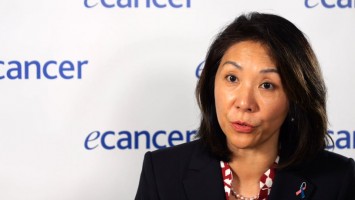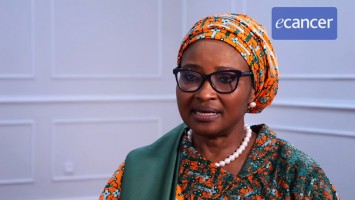I presented on cancer control plans, what they are and how to prevent them from being forgotten.
The reason is that we have so much cancer in the world, developing countries are the worst because we don’t have the systems that are in place, we don’t have strong cancer registries to have accurate data to analyse what we have, let alone work on it and there’s nothing to measure for improvements in what we are doing.
The WHO and the World Cancer Assembly 2005 in 2017 highlighted the importance of cancer control planning to reduce burdens, not just for cancer, also for NCDs because they share the same risk factors.
But everybody just forgets about cancer, so they put cancer high on the agenda for member states to make sure they do something about this looming burden.
Cancer control plans in high income countries like the USA, Europe, Australasia and the Nordic countries actually have strong cancer control planning.
They have systems in place and they have recorded an increase in cancer survival rates.
Indeed, the whole world is recording increases in cancer survival rates except for places where we don’t have enough data.
So this is enough evidence to show that cancer control plans are working.
But how do the rest of us also benefit from it, because it’s a broad range of interventions?
Some of them are not resource stratified and that is the biggest headache.
So, for example, with cervical cancer screening we really can’t use Pap smears because we don’t have the resources.
So there are other types of interventions like visual inspection with acetic acid; we’re using Lugol's iodine as well and that has shown to be almost as effective as Pap smears.
During that process, any identified lesions are treated immediately because we found out that going and visiting more than twice actually causes problems with compliance.
So now the WHO is proposing a single treat approach where if you are able to manage a patient once in their lifetime, between the age of 35 and 50, you can reduce the risk of cervical cancer by half.
So a lot of countries have embarked on this already.
An example of low income countries are like Korea and Mozambique, we also have Peru and Thailand and China who have actually come up with these and they are reducing the incidence of cervical cancer.
The Latin American countries and Southeast Asia have improved tobacco control and we’re reducing the incidence of tobacco cancer, also with colorectal cancer as well but the rest of us haven’t been able to catch up with it.
So the question is that we all have cancer control plans, about half of the cancer control plans in Eastern Europe are actually not operational.
The quality of cancer registries in most of the world is nothing to write home about.
So these are all the factors that we need to improve cancer control firstly.
But we all know that prevention of cancer is the best buy, we have the best return on investment with prevention and awareness.
I think it’s something that we all need to embark on first because we have countries who put in so much money, investment into treatments without doing anything about prevention and early detection.
The rules have to change and so we encourage a lot of countries to start with the basic things that don’t cost that many resources before they expand their facilities because that’s what causes the frustration, poor outcomes and then the cancer control fails and we all just give up.
So I think it’s the time for us to rise and see that with the little that we have we can do a lot to reduce the impact of cancer on our patients. We also have to concentrate also on quality treatments.
So training of the oncology workforce is very important; the quality they will be able to adjust according to their facilities and also be sensitive because they know exactly what is going on in their countries.
These are things that we have to consider.
Also, adapting the essential medical lists, but even with that we have to start concentrating on having resource appropriate essential medical lists because the facilities are different in different parts of the world to be able to make an impact in cancer control.








